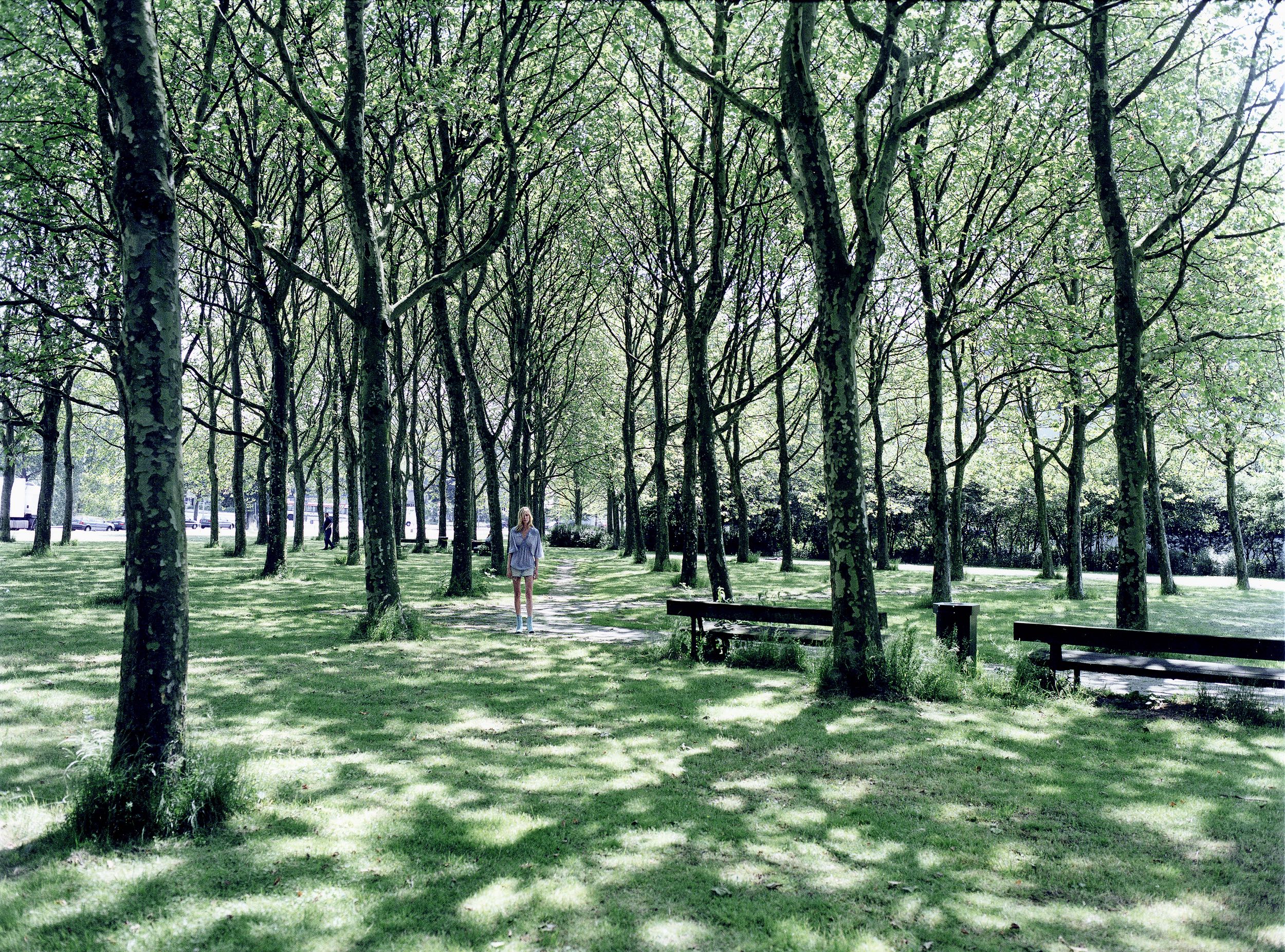Documenting America's young, lost and hiding
- Text by Biju Belinky
- Photography by Florian Geiss

We’re all looking for a sense of purpose to get us through life. It doesn’t really matter what it is – it can come in the shape of a loving person, an occupation you can pour your heart and soul into, or even just a sense of freedom, of never having to settle down and lower your head.
And it’s that search, and the melancholy of not having found a solution yet, that photographer Florian Geiss explores in his new book, Gimme Shelter. Shot all over the world, from Los Angeles to Africa’s Western Cape, his images mix the very human yearning for purpose with the sense of unfathomable loss that comes with modernity. His subjects pose carefully between expansive landscapes, both natural and man-made, making them look small, human – alone.

 It makes sense to be asking for somewhere safe to be. Although the title, Gimme Shelter, makes reference to the iconic Rolling Stones track about the Vietnam War, the book takes that necessity of physical protection from the very real threat of violence, and applies it into modernity and being young, needing emotional protection and from living without a purpose.
It makes sense to be asking for somewhere safe to be. Although the title, Gimme Shelter, makes reference to the iconic Rolling Stones track about the Vietnam War, the book takes that necessity of physical protection from the very real threat of violence, and applies it into modernity and being young, needing emotional protection and from living without a purpose.
Each image carefully staged and with a hint of cinematography, Florian explores what’s it like to exist outside of the guidelines that dictated the lives of previous generations. Because although young people are still pressured by the old American image of what “success” means, we no longer live in times where those measures of happiness are universally applicable.
He also explores gender stereotypes, still perpetuated even within this generational hopelessness. In these images, masculine subjects show an undoubtedly rough exterior, but are still frail, still struggling to find purpose outside of discipline. Women are shown as delicate, but also challenging and sexual. Florian’s subjects are multifaceted, just as all people are.
The protection they are asking for is from a storm that is both physical, shown in threatening stormy grey skies above the cities the photographer visited, and metaphorical, in the heart of young people without a carved way life, a clear future or a compass – a guide for the so-called “path towards success”. So, where do we go from here?







 Gimme Shelter by Florian Geiss is out now, published by Hatje Cantz.
Gimme Shelter by Florian Geiss is out now, published by Hatje Cantz.
Enjoyed this article? Like Huck on Facebook or follow us on Twitter.
Latest on Huck

In the ’60s and ’70s, Greenwich Village was the musical heart of New York
Talkin’ Greenwich Village — Author David Browne’s new book takes readers into the neighbourhood’s creative heyday, where a generation of artists and poets including Bob Dylan, Billie Holliday and Dave Van Ronk cut their teeth.
Written by: Cyna Mirzai

How Labour Activism changed the landscape of post-war USA
American Job — A new exhibition revisits over 70 years of working class solidarity and struggle, its radical legacy, and the central role of photography throughout.
Written by: Miss Rosen

Analogue Appreciation: Emma-Jean Thackray
Weirdo — In an ever more digital, online world, we ask our favourite artists about their most cherished pieces of physical culture. Today, multi-instrumentalist and Brownswood affiliate Emma-Jean Thackray.
Written by: Emma-Jean Thackray

Meet the shop cats of Hong Kong’s Sheung Wan district
Feline good — Traditionally adopted to keep away rats from expensive produce, the feline guardians have become part of the central neighbourhood’s fabric. Erica’s online series captures the local celebrities.
Written by: Isaac Muk

How trans rights activism and sex workers’ solidarity emerged in the ’70s and ’80s
Shoulder to Shoulder — In this extract from writer Jake Hall’s new book, which deep dives into the history of queer activism and coalition, they explore how anti-TERF and anti-SWERF campaigning developed from the same cloth.
Written by: Jake Hall

A behind the scenes look at the atomic wedgie community
Stretched out — Benjamin Fredrickson’s new project and photobook ‘Wedgies’ queers a time-old bullying act by exploring its erotic, extreme potential.
Written by: Isaac Muk